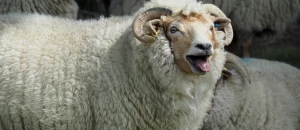In the second of our Masterclasses addressing the UN Sustainable Development Goals (SDGs), we concentrate on SDG Goal 2: Zero Hunger and how to apply its principles to your fashion business or brand.
Prior to the impacts of the Covid-19 pandemic being felt across the world, food insecurity was already on the rise. In 2018, 25.9% of the world’s population was affected by moderate or severe food insecurity. Small-scale producers, who comprise 40-85% of all food producers in developing regions, have been hit the hardest by the pandemic.
Increasingly, fashion designers and businesses are being alerted to the connection between our global food sources and fashion and textile production, and how the latter has negatively impacted the former with a general lack of concern for provenance and environmentally friendly practices. Regenerative agriculture is no longer the sole concern of organic farmers, yet is a topic of discussion in major fashion forums. Soil health, intercropping and biodiversity are issues that now must inform more positive choices in producing and consuming fashion.
In this Masterclass, we speak to a range of experts to learn about fashion’s impact on food sources, crop health, farming communities and local processing plants, alternative regenerative fibres for fashion fabrics, and the ways designers can support regenerative agriculture practices and a traceable leather industry.
In this Masterclass you will learn:
- About the different ways in which the fashion and textiles industry is connected to the farming and the food industries
- Why the World Food Programme has taken an interest in cotton-farming and how to support sustainable cotton crops
- What genetic modification is, and why it relates to textiles
- About intercropping, soil health, and other issues and practices for regenerative farming
- About flax, how it is grown and processed into linen, and why it offers a more resilient future for both fashion and agriculture
- Issues surrounding land justice, indigenous food systems and seed sovereignty
- How to approach working with leather in sustainable and environmentally-friendly ways
- About leather's inherent connection to the meat industry and how organic farming practices affect the environmental impact of both
- How food waste can be reimagined creatively for textile and garment production
-
Why Is Genome Editing And GMOs Bad For Business?
with Stephanie SteeleRead More...Summary
Key targets of the Sustainable Development Goal #2 Zero Hunger are to end hunger, promote sustainable agriculture, achieve food security and improve nutrition. In all ways, GM - or genetically modified - crops affects the land we grow our crops on, and the livelihoods of the farmers who grow them, to the nutrition in the food we eat, and the impact on our bodies and other wildlife. The impact of genetic modification, or new technology gene editing, goes way beyond just the food we see in front of us, but an entire system that is governed as a monopoly by chemical companies, and the man-made effects on water, soil, air and animals.
In this lesson we dive in to what GM is, and to give you guidance on how you can use the knowledge within your practice.
-
How Textiles Can Increase Sustainable Food Production
with Joelcio CarvalhoRead More...Summary
The Beyond Cotton Project is a joint initiative of the World Food Programme's Centre of Excellence Against Hunger in Brazil and the Brazilian Cooperation Agency. Hear how the project's organisers view cotton as a key tool to support food security and local development, and their strategies for empowering farmers.
-
Growing Flax For A Resilient Food And Fibre Industry
with Simon CooperRead More...Summary
Simon Cooper, co-owner of Flaxland in the Cotswolds, UK and farmer of linseed and flax, explains what the benefits of growing flax are for the purposes of increasing resilience, building biodiversity and nourishing both soil health and our health.
Simon also works wood and is crafty with materials and uses his skills and knowledge to create composite fibre canoes out of his own fibre and oil. He and his wife Ann conduct workshops to increase awareness around the flax cottage industry, from growing to weaving, and the additional products you can get from this magnificent heritage crop.
Thumbnail image: Ian Paterson on www.wildflowerfinder.org.uk
-
Leather Production Misconceptions, Traceability and Alternatives
with Kerry SeniorRead More...Summary
Busting popular myths about the environmental and ethical issues surrounding leather, Kerry Senior, Director of Leather UK, the trade association for the UK’s leather industry, presents some surprising facts behind this much-misunderstood material.
This Lesson covers leather’s origins as a byproduct, its inherent connection to the agricultural sector, methane emissions and how leather stacks up against synthetic alternatives – everything a designer or business needs to know to make informed choices about their materials.
Head to part two of this conversation where we dive deeper into the topic and learn about chrome-tanning and exotic leathers.
Thumbnail image: DEFRA
-
The Role Of Education In Connecting Food With Fashion
with Arantza VilasRead More...Summary
This is a 23 minute lesson. Textile artist and designer Arantza Vilas, founder of Pinaki Studios, introduces the ways in which she connects food with textiles through utilising food waste, collaborating with chefs, and experimenting with materials. The role of education - both via means of research and play - comes to the fore as Arantza explains her background.
-
Indigenous Food Systems And Land Justice
with Stephanie SteeleRead More...Summary
As all of our fibres come from the land - whether natural or synthetic - it is integral to understand and acknowledge the remarkable value within every single thread woven or knitted into the clothing we wear. Fibre systems are tied within food systems, and as a designer and business owner, it is your responsibility to educate yourself on where your materials come from, who produced them for you, and whether there is disparity in the basic human rights of those involved.
There are major discrepancies in the land rights of indigenous peoples who fight against big corporations for what is rightfully their common property, and inequalities in land access across the world due to race, gender and caste. Wherever you look within your supply chain - even if you only operate digitally - there is a requirement of land to allow business to run, for products to be made, for people to survive.
So what do you as an entrepreneur need to know in order to ensure you are supporting land justice, and therefore ensuring a future for incoming generations? Where do you look to educate yourself on seemingly new terminologies like "environmental justice", "intersectional environmentalism", "biodiversity", and "indigenous food systems"? In this lesson, we pull together resources that will get you started on understanding this topic and how it relates to fashion and textiles.
Thumbnail image: iStock
-
Regenerative Organic Textiles And Food
with Elizabeth WhitlowRead More...Summary
The way we cultivate our land results in wide-reaching impacts on our environment and society. Improved soil health means less habitat desctruction, less exploitation, freedom from toxic chemicals and less factory farming.
These factors relate both to food production and textile fibre production and in this Lesson we learn how the two come together in the pioneering work of the Regenerative Organic Alliance (ROA) which counts Patagonia as one of its founding members. Executive Director of the ROA Elizabeth Whitlow, joins us to discuss the ROA's revolutionary new certification for farmers and why it matters to fashion businesses.
Interviews
Alice Robinson: Connecting Food, Farming And Fashion
Monday Mar 1st, 2021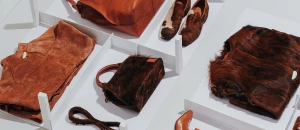
Cordwainers Grow: Urban Food and Textiles
Monday Nov 1st, 2021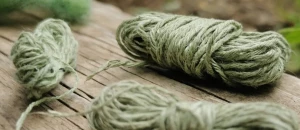
Technical Tutorials
Agraloop™: Producing and Working with BioFibres
Friday May 1st, 2020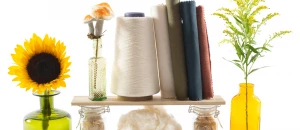
How to process the nettle plant into fibre
Sunday Nov 1st, 2020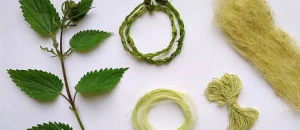
PLA Fabrics and Life Cycle Assessments
Monday Feb 1st, 2021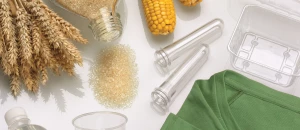
Past Events
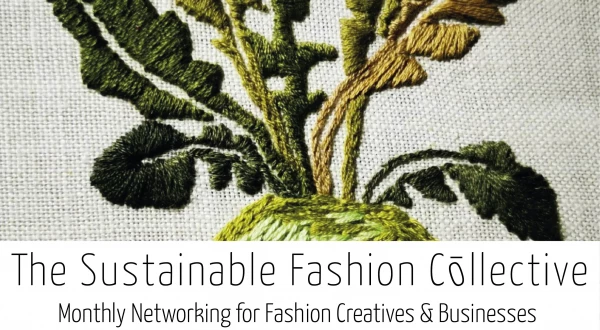
In Conversation With: Cordwainers Grow on Urban Food and Textiles
Monday Mar 29th, 2021 - 20:00pmOnline only
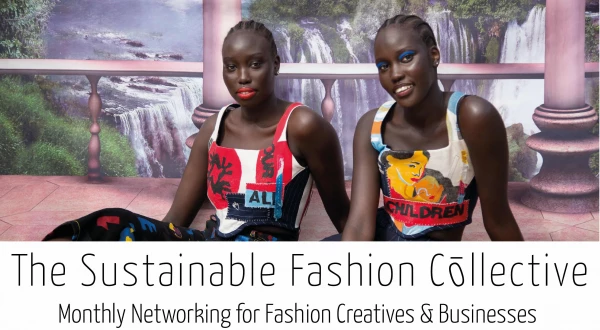
In Conversation With: Bethany Williams and The Magpie Project
Wednesday Feb 24th, 2021 - 19:00pmOnline only
Follow On Masterclasses:
Additional Reading
Top Takeaways from The Regenerative Fashion Conference
Sunday Oct 1st, 2023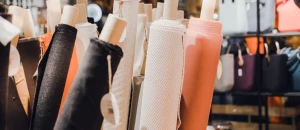
How Much Deforestation Is Your Cotton Creating?
Tuesday Jul 20th, 2021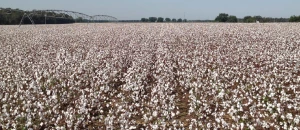
Future Fabrics Expo 2021: Biodiversity, Natural Fibres and Regenerative Textiles
Sunday Jul 11th, 2021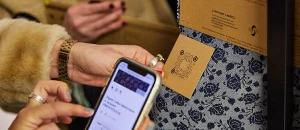
How to create positive impact with natural materials
Monday Apr 12th, 2021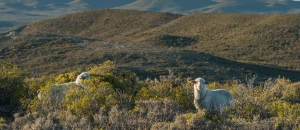
Fabrics From Food Waste, Mushroom And Weeds
Wednesday Mar 10th, 2021
Highlights From The Virtual Oxford Real Farming Conference 2020 - Part Three
Monday Feb 1st, 2021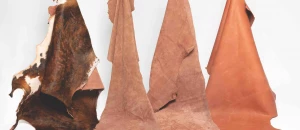
Highlights From The Virtual Oxford Real Farming Conference 2020 - Part Two
Monday Jan 25th, 2021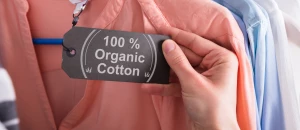
Highlights From The Virtual Oxford Real Farming Conference 2020 - Part One
Monday Jan 18th, 2021
What Are The Sustainable Development Goals And Why Should Your Brand Support Them
Monday Jan 11th, 2021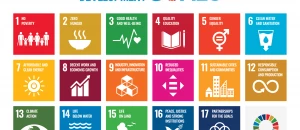
Building A British Fibreshed And Its Benefit For Fashion
Friday Jul 3rd, 2020